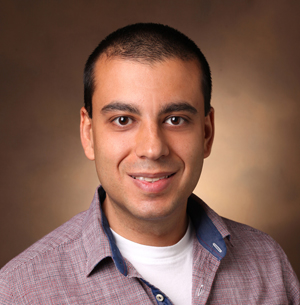by Bill Snyder
More than a million people in the United States are living with HIV, the virus that causes AIDS. One-fifth of them have been co-infected by the hepatitis C virus (HCV), which attacks the liver.
Curative drugs for HCV are available, but many people don’t know they’ve been infected. And if they also have HIV, for which there is no cure, co-infection appears to accelerate liver damage, including cirrhosis and liver cancer, both of which are on the rise in the United States.
Last week researchers at Vanderbilt University Medical Center reported a paradigm- breaking discovery that potentially could transform the treatment of HIV/HCV co-infection — antibodies that are “cross-reactive” and can attack both viruses at the same time.

“Such cross-reactive antibodies can be of significant value for the development of broadly protective antiviral therapeutics and can provide novel templates for the design of effective vaccines against both HIV-1 and HCV,” said Ivelin Georgiev, PhD, associate professor of Pathology, Microbiology & Immunology, Biomedical Informatics and Computer Science.
Their findings, reported Jan. 27 in the journal Cell Reports, also could improve the treatment of COVID-19 and other emerging infectious diseases, the researchers said.
To study antibodies generated in response to HIV/HCV co-infection, Georgiev and his colleagues applied a technique they developed called LIBRA-seq (Linking B-cell Receptor to Antigen Specificity), which can map antibody sequences and antigen specificities simultaneously.
It has long been thought that antibodies produced by “B”-type white blood cells in response to infection attack their targets, invading viruses and other microorganisms, with an exclusive, laser-like focus.
To their surprise, the researchers identified five cross-reactive antibodies in a co-infected individual that exhibited both anti-HIV and anti-HCV activity.
“These results challenge our long-standing understanding of the exclusiveness of antibody-antigen specificity and pave the way toward the development of effective therapeutics and vaccines with an unparalleled breadth of reactivity,” they concluded.
Kelsey Pilewski, PhD, a former postdoctoral fellow in the Georgiev lab who is now at the Food and Drug Administration, is the paper’s first author.
VUMC co-authors include Steven Wall, Elad Binshtein, PhD, Rohit Venkat, Kevin Kramer, PhD (now at Sanofi), Andrea Shiakolas, PhD, Ian Setliff, PhD, Naveen Suryadevara, PhD, John Brannon, PhD (now at Syneos Health), Connor Beebout, PhD, Nagarajan Raju, PhD, Lauren Walker, Emilee Friedman Fechter, Juliana Qin, Amyn Murji, Robert Carnahan, PhD, Maria Hadjifrangiskou, PhD, James E. Crowe Jr., MD, and Spyros Kalams, MD.
Researchers from the National Health Laboratory Service and University of the Wiwatersrand in Johannesburg, Johns Hopkins University, the University of Georgia, and Duke University also contributed to the study. n
The study was supported in part by National Institutes of Health grants AI152693, AI131722, AI157155, AI165947, DK123967, GM007569, GM007347 and AI150077.




